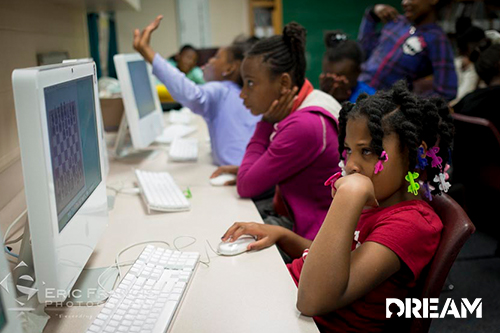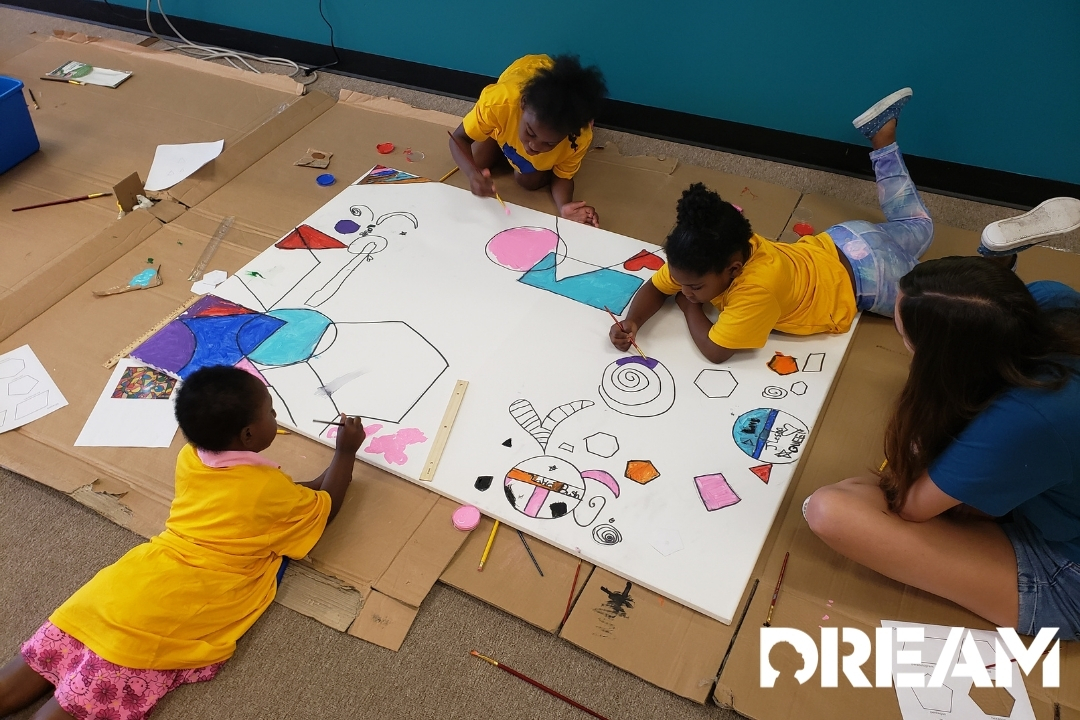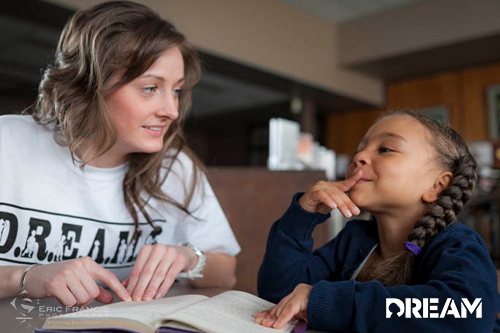Students need more than a strong curriculum, good teachers, and time in the classroom to succeed. After school programs like DREAM have long known that they can embrace the hours between the time school closes and parents return from work to provide children, especially those who don’t have access to other activities, with exciting, engaging experiences that will help them grow in their academic, social and professional skills.
The research is clear: children in quality after school programs are more likely to come to school and stay in school, more likely to hand in their work and get better grades. Yet, after school programs falls off the radar in discussions of how to improve education. Why? There are six things a high-quality program like DREAM can do for kids.
If the after school program isn’t run by the school district or a facility nearby, children can get to know different kids than those they see at school. That means they don’t have to deal with the same cliques and social issues. If it is run at your child’s school or nearby, the program can give your child a chance to connect with familiar kids in a different environment.
There’s generally more adult supervision than on the school playground. As a result, kids with learning or attention issues are more likely to be included and feel part of the group.
Programs like DREAM promote cooperation, support and respect. This can help kids feel more secure about joining a game or starting a conversation. If they slip up, a sympathetic staffer should be on hand to remind them to take turns or stop interrupting.
Many after school programs, including DREAM, offer structured homework help. Homework can often cause friction between kids with learning and attention issues and their parents. So getting it done during the program can make everyone’s evening more pleasant and relaxing.
Make sure that the aides or other children aren’t doing homework for your child. Some centers don’t have teachers or aides who are equipped to handle kids with learning and attention issues.
Some after school programs, including DREAM, offer classes in areas like science or computer sessions. In these sessions, there aren’t tests and students may work together in groups. For kids with learning and attention issues, these classes can be stress-free, fun and meaningful. Programs may also offer arts options like drama and music, which can help kids find new interests.
Sadly, kids with learning and attention issues who are not involved in quality after school programs are more likely to be victimized or to engage in risky behavior. Research shows that the hours between 3 p.m. and 6 p.m. are when kids are most likely to commit crimes, drink and use drugs or become the victims of crime. However, keeping kids busy can prevent them from engaging in risky behavior. Studies also show that being in an after school program like DREAM can result in better grades and fewer behavioral problems.
DREAM, one of the Midwest’s well-known youth mentoring organizations, provides life-changing and life-enriching experiences to at-risk youth through mentoring and after-school programs in Omaha, Nebraska, and Springfield, Missouri. Their proven approach puts children in a comfortable setting where they’re encouraged to discuss openly, learn, and grow as individuals. Are you interested in getting involved with DREAM? Contact us today.






